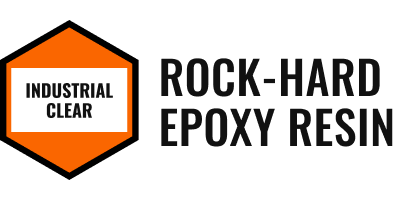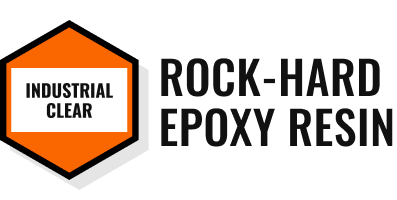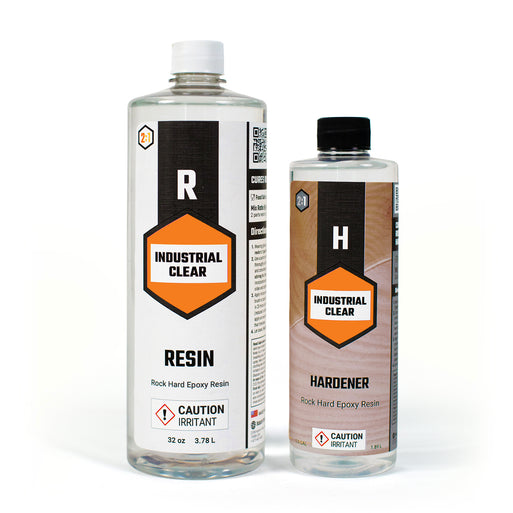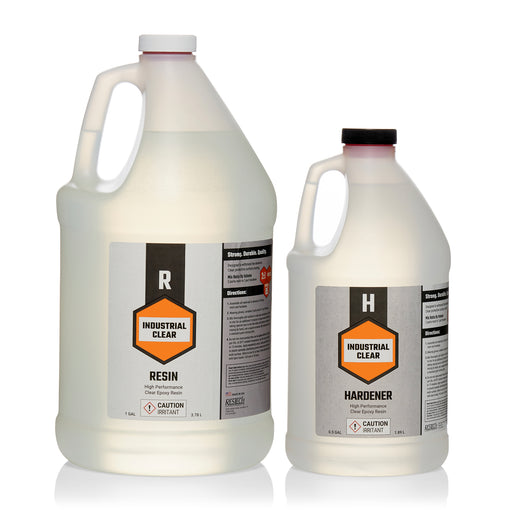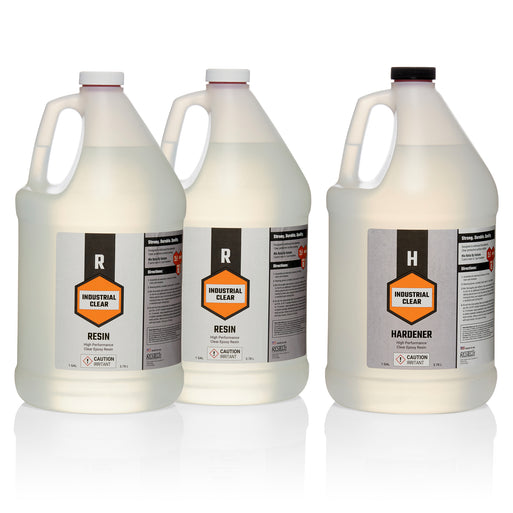What is chemical resistance in epoxy resin?
Chemical resistance in epoxy resin refers to its ability to withstand the damaging effects of various chemicals that can cause degradation. Epoxy's chemical resistance, in addition to its excellent strength, adhesion, and moisture resistance, provides an impervious barrier on surfaces. Industries such as medical, construction, marine, and manufacturing depend on epoxy resin as a critical component where epoxy chemical resistance is necessary.
To ensure maximum protection, selecting the appropriate epoxy resin formula for the task is crucial. For example, Industrial Clear epoxy resin is intentionally crafted to provide exceptional hardness, durability, and heat resistance, while also being chemically resistant. It is designed to maintain its integrity even in the presence of mild acids and chemicals.


Why is chemical resistance important for epoxy resin?
Epoxy resin is widely used as a protective coating for a range of surfaces, including concrete, wood, plastic, and metal. Epoxy's chemical resistance is crucial to maintain its strength and structural integrity over time, especially in settings where the substrate is exposed to various chemicals.
Flooring, lab equipment, medical devices, chemical pipes and tanks, wastewater treatment plants, processing plants, ships, and airplanes are examples of surfaces that require chemical resistance. The epoxy resin used must provide the maximum level and longevity of chemical resistance, excellent adhesion, and the strength to withstand impact without cracking. Additionally, it should have a non-toxic formula that doesn't leach solvents, VOCs, or other contaminants. Industrial Clear epoxy resin has been formulated to meet all these requirements, making it an ideal choice for a wide variety of applications.
How is the chemical resistance of epoxy resin tested?
When testing for epoxy resin chemical resistance, a sample is first created and weighed. The sample is then immersed in a chemical bath for a specific duration of time. After removal from the bath, the sample is dried and weighed again. If the sample is heavier than before, it indicates that the chemical has penetrated the resin and caused it to swell. Additionally, a visual inspection is carried out for signs of an epoxy chemical reaction, including dullness, chalkiness, brittleness, or cracking.

What types of chemicals can epoxy resin be resistant to?
The chemical resistance of epoxy resin will vary depending on the specific product's formulation as well as the types of chemicals it may be exposed to. Typically, epoxy resin has a high degree of resistance to a wide range of acids, bases, solvents, and other chemicals. However, some chemicals may be more aggressive, causing damage or deterioration of the epoxy.
Industrial Clear epoxy resin provides an added level of protection for any project, especially when exposed to chemicals that might otherwise degrade and damage the surface. Industrial Clear underwent testing against a variety of common chemicals including acetone, alcohol, ammonia, beer, borax, butane, diesel, gasoline, hydrogen peroxide, kerosene, castor oil, liquid propane, various soaps, vinegar and salt water. The results showed a high level of chemical resistance in every test conducted.
It is interesting to note that the more dense the chemical bonds of a cured epoxy, the more chemical resistant it is. Dense chemical bonds can also be described as dense crosslinking at the molecular level. Testing shows that epoxy resin left to cure in a hotter room results in more dense crosslinking with higher chemical resistance.
Read about the benefits of using a hard curing epoxy resin.


Can the chemical resistance of epoxy resin be improved?
The most important way to improve the chemical resistance is to use a specialized chemical resistant epoxy that is specifically formulated to withstand exposure to specific chemicals.
Other methods include adding fillers or additives to the epoxy to augment its chemical resistance, or applying a topcoat or sealant to provide an additional layer of protection.
Industrial Clear: Rock Hard Epoxy Resin
